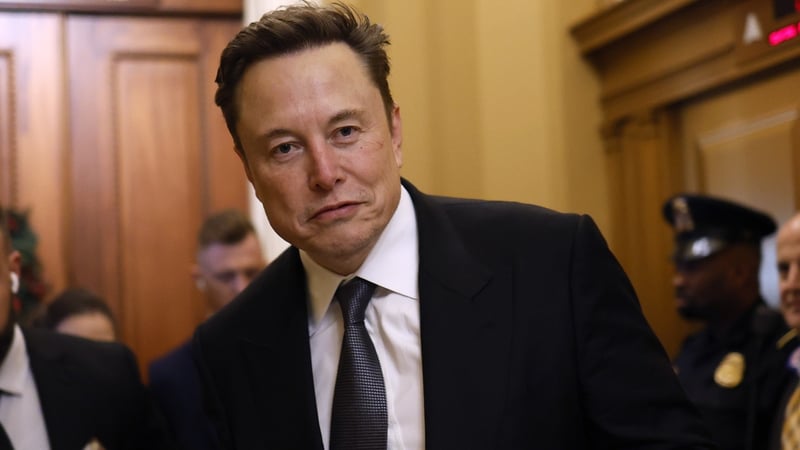Without billionaire Elon Musk in the Trump administration, his cost-cutting Department of Government Efficiency project is likely to “fizzle” out, a former DOGE employee has said.
The Tesla CEO announced on Wednesday that he was ending his time as a special US government employee, but vowed that DOGE would continue without him.
Administration media representatives also said in statements to Reuters that DOGE would continue its work.
DOGE has overseen job cuts at nearly every federal agency as part of US President Donald Trump’s attempts to shake up the federal bureaucracy.
However, software engineer Sahil Lavingia, who spent almost two months working for the group, said he expects DOGE to quickly “fizzle out.”
“It’ll just die a whimper,” Mr Lavingia, who was fired from DOGE earlier this month, said. “So much of the appeal and allure was Elon.”
He said he expected DOGE employees to “just stop showing up to work. It’s like kids joining a startup that will go out of business in four months.”
That would cap a remarkable undoing for DOGE, which Mr Musk initially vowed would cut $2 trillion in federal spending.
Instead, DOGE estimates its efforts have saved around $175 billion so far and the group’s tallies have been riddled with errors.
The White House praised DOGE but did not comment on Mr Lavingia.
“DOGE is integral to the federal government’s operations, and its mission, as established by the President’s executive order, will continue under the direction of agency and department heads in the Trump administration,” White House spokesperson Harrison Fields said.
Mr Lavingia, the 32-year-old founder and CEO of creator platform Gumroad, said he was recruited by DOGE through a personal contact and joined the team in March.
While he said he was proud of certain achievements at the Department of Veterans Affairs, including modernising the agency’s internal artificial-intelligence chatbot, he said he was often at a loss about what work he was expected to do.
“I got dropped into the VA with an HP laptop. What are we supposed to do? What is the road map?” Mr Lavingia said he asked, to no avail. “I felt like I was being pranked.”

Veterans Affairs press secretary Pete Kasperowicz said in a statement to Reuters: “VA looks forward to continuing to work with its DOGE liaisons to help the department improve its performance, customer service, and convenience to Veterans.”
Mr Lavingia said Steve Davis, the president of Mr Musk’s tunneling enterprise the Boring Company, ran day-to-day operations while Turkish-born venture capitalist Baris Akis helped with DOGE recruitment and DOGE logistics.
Mr Davis and Mr Akis did not respond to requests for comment sent via the White House.
When instructions did come through, they were usually communicated through phone calls or small chats on the encrypted Signal messaging app that would typically auto-delete in one day, Mr Lavingia said.
He said instructions included moving faster to increase mass layoffs at the VA, the federal government’s second-largest agency.
The only time he met Mr Musk, Mr Lavingia said, was at an all-hands meeting in March with what he estimated was between 40 and 60 fellow DOGE employees.
Mr Lavingia said he asked to open-source, or make freely available, some of his computer code, which Mr Musk approved.
He then asked if they could livestream DOGE meetings to increase transparency.
“Elon said: ‘That’s a great idea. We’ll do it next week.’ He then caught himself and said: ‘Maybe we pre-record it because of security risks.'”
Mr Lavingia said he never heard back.
In early May, after he spoke to media outlet Fast Company about working at DOGE, Mr Lavingia said his computer access was revoked in what amounted to a firing. He said Mr Musk and team leaders never explicitly told him he should not talk to journalists.
“My DOGE days were over,” Mr Lavingia wrote in a blog about his experience.



